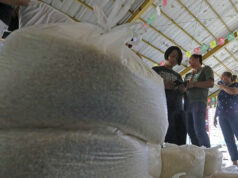THE coronavirus disease 2019 (COVID-19) outbreak holds the potential for helping marine environments recover if economies adopt greener practices, the United Nations Economic and Social Commission for Asia and the Pacific (ESCAP) said.
In a report, Changing Sails: Accelerating Regional Actions for Sustainable Oceans in Asia and the Pacific, it said that large-scale recovery investment being put in place by governments may help turn the tide towards improving marine sustainability after the pandemic.
This is premised on a shift towards sustainable practices such as green shipping, aquaculture, and tourism, among others.
United Nations Undersecretary-General Armida Salsiah Alisjahbana said the pandemic points to an opportunity to protect the marine environment after the pandemic demonstrated the immediate impact of reduced emissions and energy demand.
“Many of the challenges in the conservation and sustainable use of the oceans and marine resources lie in the transboundary and highly complex nature of ocean management, coupled with the fragmented understanding of the interaction between oceans and human activities,” Ms. Alisjahbana said.
Countries in the Asia-Pacific are among the world’s top plastic polluters.
ESCAP said that eight of the 10 major rivers in Asia are responsible for 95% of plastic waste leaking globally into oceans.
ESCAP called for the use of scientific and technological advances and the consistent enforcement of international conventions and standards on the protection and sustainable use of oceans.
“All of us know that the ocean’s health is very fragile especially due to the impact of climate change,” Ms. Alishjahbana said.
ESCAP sought stronger regional cooperation and dialogue to support the connectivity and data needs of Pacific small island developing states, which remain isolated from global and regional maritime trade. — Revin Mikhael D. Ochave



